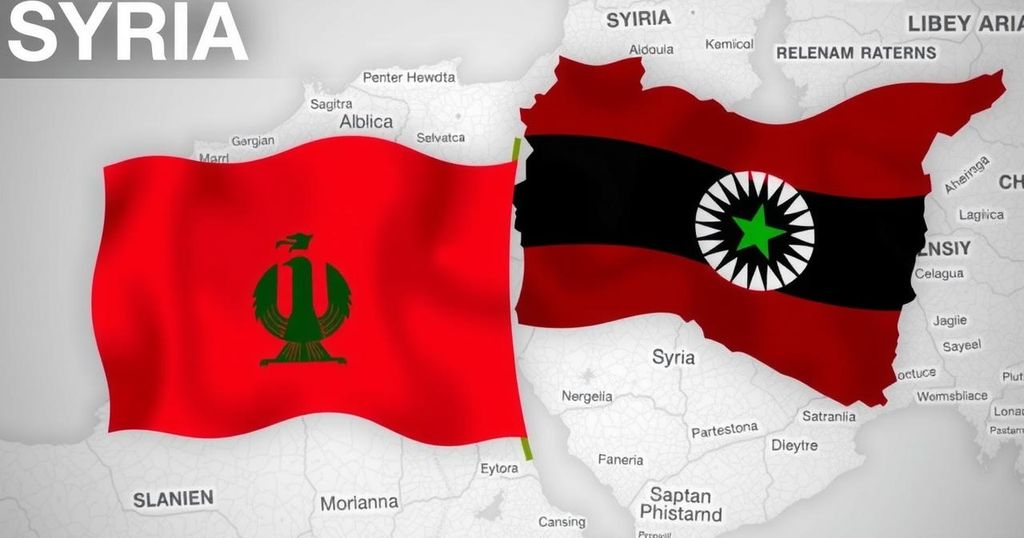Russia Considers Military Movement to Libya Amidst Uncertainty in Syria

Analysts are deliberating on the potential shift of Russian military resources from Syria to Libya, assessing the resulting consequences on regional stability and international relations. While Russia’s position in Syria appears to weaken, the Kremlin aims to strengthen its strategic foothold in North Africa, complicating the ongoing power dynamics in Libya and intensifying NATO-Russia tensions. The outcome remains uncertain amid Libya’s internal power struggles and the evolving geopolitical environment.
Analysts are currently evaluating the potential strategic shift of Russian military forces from Syria to Libya, highlighting significant implications for Moscow, Tripoli, and the broader region. Although the economic and material losses for Russia due to diminishing influence in Syria appear minor, the Kremlin appears resolute in maintaining its strategic presence across the Mediterranean and Africa, developed over the past decade. The ongoing situation in Syria, particularly the uncertain future of Russian military bases, renders Libya an appealing alternative for Russia’s military ambitions, given its existing connections there and the geopolitical advantages it offers.
Russia’s involvement in Syria has been crucial in supporting Bashar al-Assad’s regime, evidenced by the establishment of key military bases in Khmeimim and Tartous. However, as the control of these bases becomes questionable with new power dynamics emerging in Syria, analysts suggest that a military shift to Libya may be Russia’s best option. The implications of increased Russian military presence in Libya on regional stability, particularly regarding NATO, are under scrutiny.
The Kremlin’s interest in expanding its influence in Africa through Libya and Syria has been a strategic priority since around 2017, with experts noting that Russia perceives Africa as a significant battleground amidst a new global power dynamic. Expanding its foothold in Libya would provide Russia with leverage over European interests while asserting power in North Africa and the Sahel region. However, recent assessments indicate no immediate preparations for an influx of Russian military personnel in eastern Libya, which remains caught up in its internal struggle for legitimacy and power.
As Libya navigates a power struggle with competing governments, the potential reliance on Russian military might could tilt the balance of influence in the country. Should Russia establish a substantial military foothold in eastern Libya, renegade commander Khalifa Haftar could gain direct leverage in national negotiations, undermining the already fragile stability within the nation. Furthermore, the strategic position of Libya could offer Russia a platform for exerting pressure on European migration routes and trade corridors in a manner that constitutes hybrid warfare.
Despite his ties to Russia, Haftar continues to receive outreach from Western nations, seeking to engage him in discussions of regional stability, primarily focused on curbing irregular migration flows. However, analysts caution that western efforts to stabilize Haftar may be misguided, as he remains a proxy for Russian interests in the region and has significant internal challenges to address. Thus, developments in Libya reflect broader geopolitical maneuvers, with the potential for increased tension between Russian and NATO forces in proximity to the Mediterranean.
Overall, the evolving landscape in Libya, influenced heavily by Russian ambitions and local power dynamics, presents challenges for both regional stability and international relations as old alliances shift and new power structures emerge.
The article discusses the potential implications of a Russian military redeployment from Syria to Libya amidst changing geopolitical scenarios. It highlights Russia’s long-standing interest in establishing strategic bases in Syria and Libya to maintain influence across the Mediterranean and Africa. Analysts emphasize the ramifications of such a maneuver for local and regional stability, particularly concerning the NATO alliance and ongoing conflicts within Libya. The complex interplay between Russian interests in Africa and internal Libyan power struggles is integral to understanding the overarching geopolitical dynamics at play.
In summary, the repositioning of Russian military forces from Syria to Libya could significantly alter the balance of power within the region. As Russia seeks to solidify its influence in North Africa, the implications for both local governance and international relations must be considered. The complex interplay between Russian ambitions, the instability within Libya, and the reactions of Western nations may hinder stability efforts and exacerbate existing tensions, demanding close monitoring in the coming months.
Original Source: www.aljazeera.com






